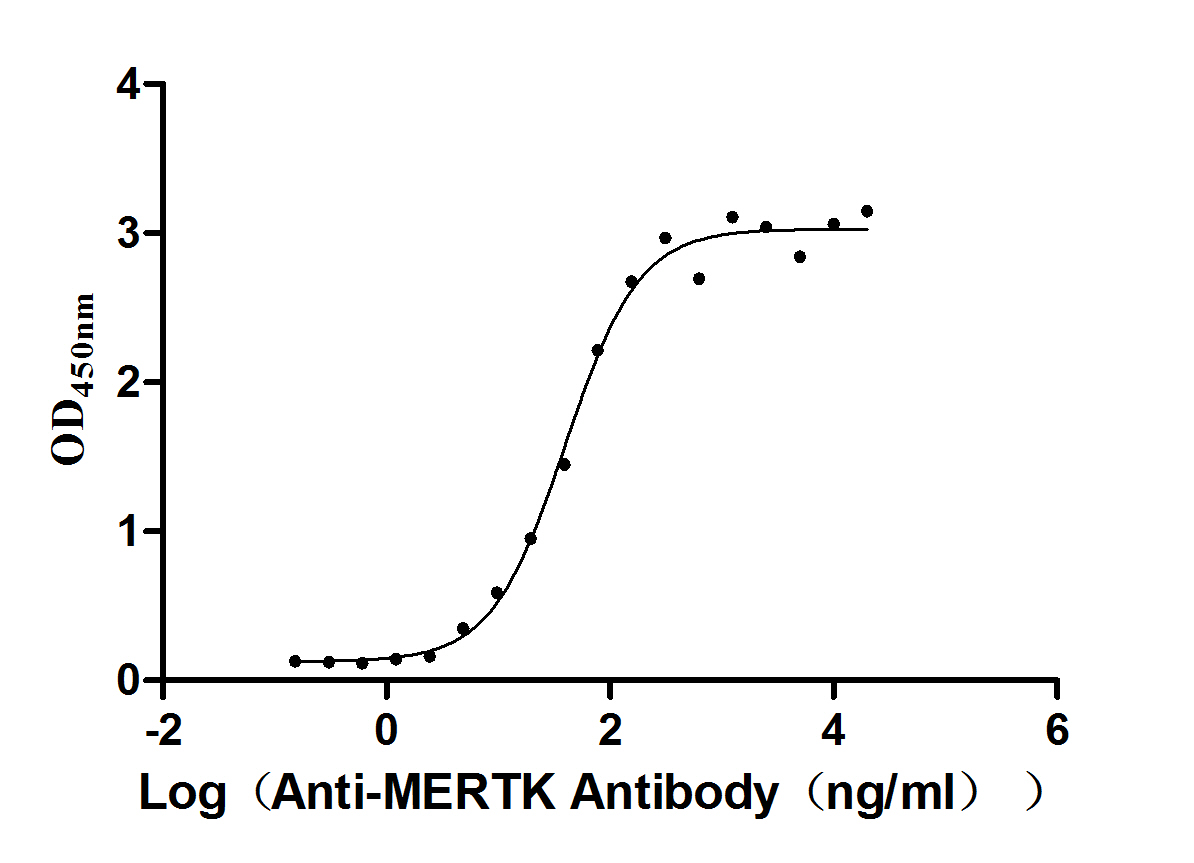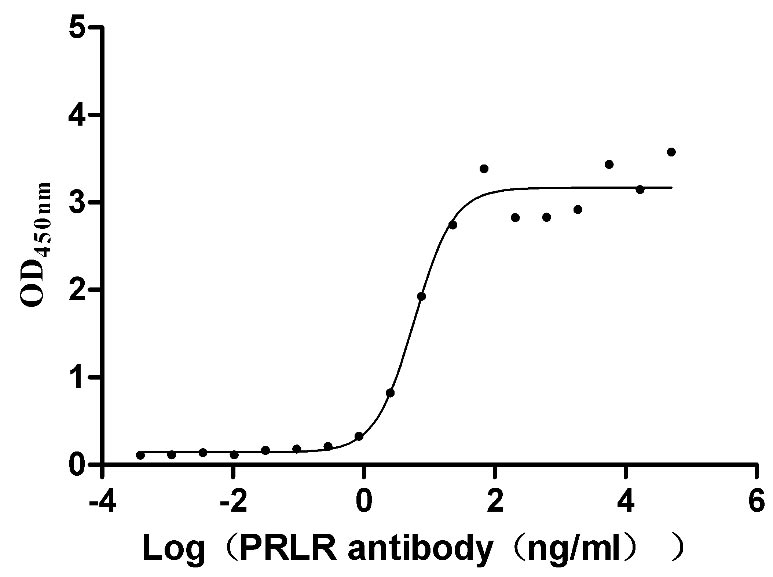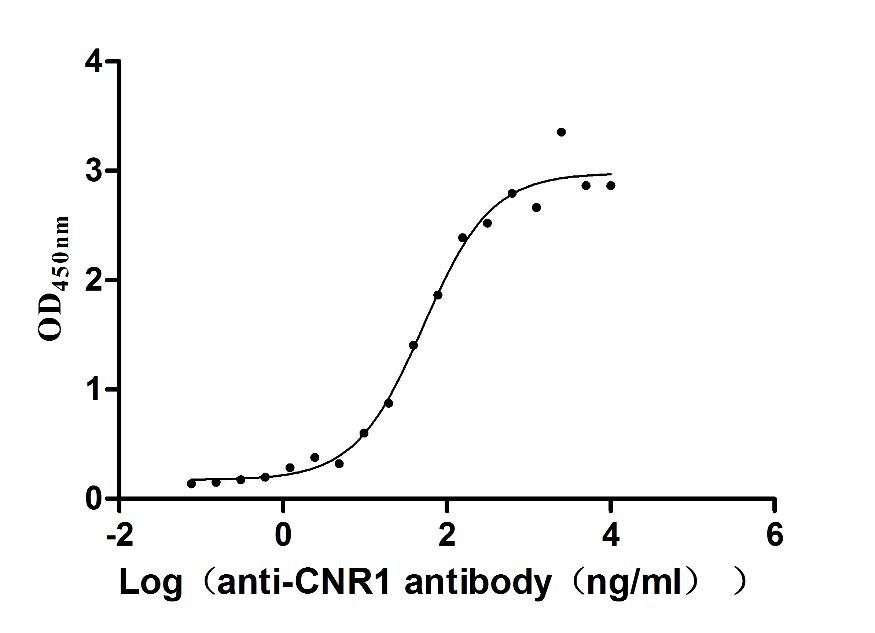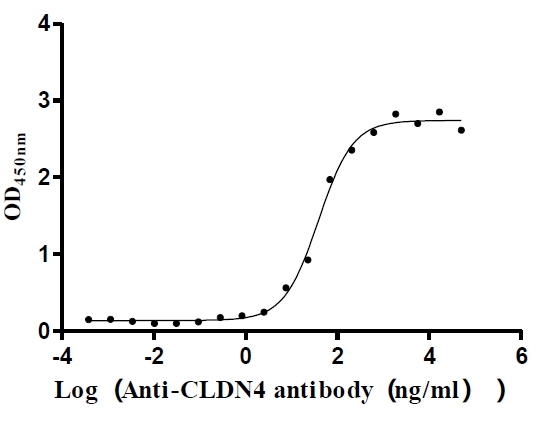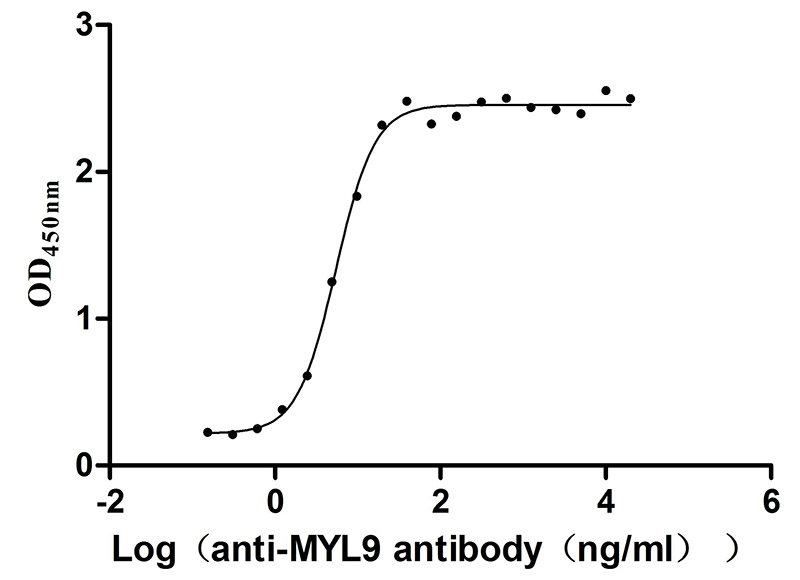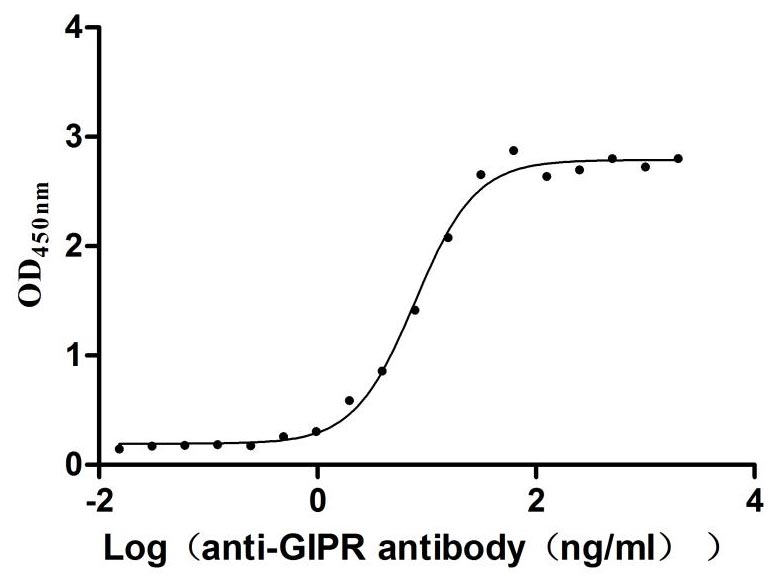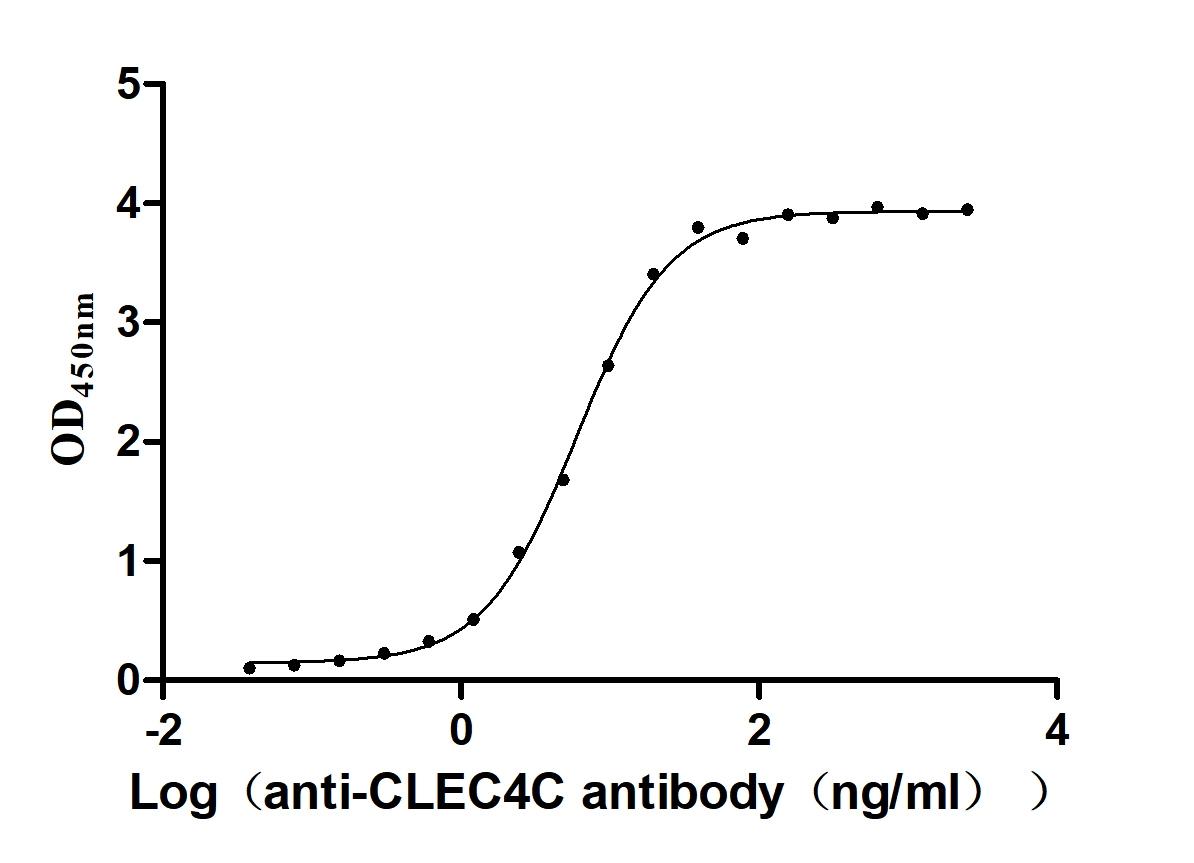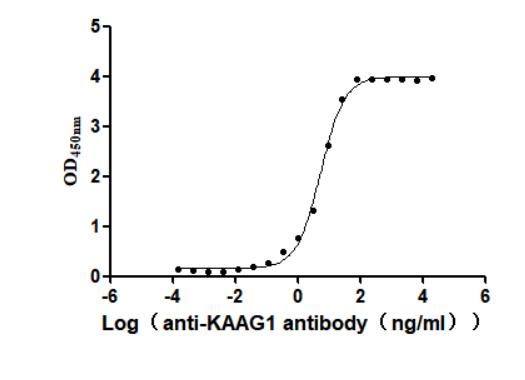Recombinant Human Pappalysin-1 (PAPPA)
-
中文名稱:
-
貨號:CSB-YP621656HU1
-
規(guī)格:
-
來源:Yeast
-
其他:
-
中文名稱:
-
貨號:CSB-EP621656HU1
-
規(guī)格:
-
來源:E.coli
-
其他:
-
中文名稱:
-
貨號:CSB-EP621656HU1-B
-
規(guī)格:
-
來源:E.coli
-
共軛:Avi-tag Biotinylated
E. coli biotin ligase (BirA) is highly specific in covalently attaching biotin to the 15 amino acid AviTag peptide. This recombinant protein was biotinylated in vivo by AviTag-BirA technology, which method is BriA catalyzes amide linkage between the biotin and the specific lysine of the AviTag.
-
其他:
-
中文名稱:
-
貨號:CSB-BP621656HU1
-
規(guī)格:
-
來源:Baculovirus
-
其他:
-
中文名稱:
-
貨號:CSB-MP621656HU1
-
規(guī)格:
-
來源:Mammalian cell
-
其他:
產(chǎn)品詳情
-
純度:>85% (SDS-PAGE)
-
基因名:PAPP1
-
Uniprot No.:
-
別名:Pappalysin-1; EC 3.4.24.79; Insulin-like growth factor-dependent IGF-binding protein 4 protease; IGF-dependent IGFBP-4 protease; IGFBP-4ase; Pregnancy-associated plasma protein A; PAPP-A; PAPPA
-
種屬:Homo sapiens (Human)
-
蛋白標(biāo)簽:Tag?type?will?be?determined?during?the?manufacturing?process.
The tag type will be determined during production process. If you have specified tag type, please tell us and we will develop the specified tag preferentially. -
產(chǎn)品提供形式:Liquid or Lyophilized powder
Note: We will preferentially ship the format that we have in stock, however, if you have any special requirement for the format, please remark your requirement when placing the order, we will prepare according to your demand. -
復(fù)溶:We recommend that this vial be briefly centrifuged prior to opening to bring the contents to the bottom. Please reconstitute protein in deionized sterile water to a concentration of 0.1-1.0 mg/mL.We recommend to add 5-50% of glycerol (final concentration) and aliquot for long-term storage at -20℃/-80℃. Our default final concentration of glycerol is 50%. Customers could use it as reference.
-
儲存條件:Store at -20°C/-80°C upon receipt, aliquoting is necessary for mutiple use. Avoid repeated freeze-thaw cycles.
-
保質(zhì)期:The shelf life is related to many factors, storage state, buffer ingredients, storage temperature and the stability of the protein itself.
Generally, the shelf life of liquid form is 6 months at -20°C/-80°C. The shelf life of lyophilized form is 12 months at -20°C/-80°C. -
貨期:Delivery time may differ from different purchasing way or location, please kindly consult your local distributors for specific delivery time.Note: All of our proteins are default shipped with normal blue ice packs, if you request to ship with dry ice, please communicate with us in advance and extra fees will be charged.
-
注意事項(xiàng):Repeated freezing and thawing is not recommended. Store working aliquots at 4°C for up to one week.
-
Datasheet :Please contact us to get it.
相關(guān)產(chǎn)品
靶點(diǎn)詳情
-
功能:Metalloproteinase which specifically cleaves IGFBP-4 and IGFBP-5, resulting in release of bound IGF. Cleavage of IGFBP-4 is dramatically enhanced by the presence of IGF, whereas cleavage of IGFBP-5 is slightly inhibited by the presence of IGF.
-
基因功能參考文獻(xiàn):
- Serum PAPP-A at third trimester of pregnancy was not associated with late-onset pre-eclampsia and intrauterine growth retardation after 34weeks of pregnancy. PMID: 29674192
- Elevated PROK1 in the first pregnancy trimester is a more effective marker than PAPP-A in the prediction of pre-eclampsia and fetal growth restriction. PMID: 28675948
- The findings suggest a possible pathophysiological link between the development of Fetal growth restriction and the expression of PAPPA, PAPPA2 and PLAC-1. PMID: 29532882
- Data suggest that PGF and PAPPA serve as serum biomarkers for early diagnosis of gestational hypertension. These studies were conducted at antenatal clinics in Ghana using blood from women between 8 and 13 weeks gestation. (PGF = placental growth factor; PAPPA = pregnancy-associated plasma protein-A) PMID: 29587776
- Pregnancy associated plasma protein-A (PAPP-A) appears to be a potentially useful biomarker for short-term risk stratification of patients presenting with chest pain of ischemic origin (Review). PMID: 29144175
- These data suggested that hsa_circ_0004904 and hsa_circ_0001855 combined with PAPP-A might be promising biomarkers for the detection of Preeclampsia. Bioinformatics analysis predicted that hsa_circ_0004904 and hsa_circ_0001855 miRNA sponges directly target PAPP-A. PMID: 29758559
- higher first trimester serum values seem to be associated with placenta accreta in women with placenta previa PMID: 28027672
- Studied the role of pregnancy-associated plasma protein A (PAPP-A) in the outcome of ischemic cerebrovascular disease. PMID: 27809366
- maternal serum levels associated with small for gestational age neonates, preterm birth, and pre-eclampsia PMID: 28514830
- PAPP-A and ProMBP are associated with increased risk of death in heart failure patients. PMID: 28537443
- low levels not associated with high serum estradiol at controlled ovarian stimulation PMID: 28606451
- PAPP-A C/C genotypes were more frequent among mothers with gestational diabetes than in control. PMID: 28655969
- Elevated PAPP-A compared to other risk factors was a stronger predictor for future CV events 2 years post ACS in patients with type 2 diabetes mellitus. PMID: 28381225
- PAPP-A, like CCS and CIMT, is a parameter that can be used to detect subclinical atherosclerosis. PMID: 28791822
- Results suggest that links between PAPP-A concentrations in early pregnancy and subsequent glucose concentrations and blood pressures may be mediated by changes in insulin sensitivity (and secretion). PMID: 28323969
- Collectively, these results identify PAPP-A as a pregnancy-dependent oncogene while also showing that extended lactation is protective against PAPP-A-mediated carcinogenesis. PMID: 26951623
- Lower PlGF and higher PAPP-A and free beta-hCG levels were found in the fetal circulation of near-term severe preeclamptic pregnancies PMID: 27809614
- PAPP-A 1224 SNP has a significant effect on the level and activity of PAPP-A in human follicles, suggesting that the follicular fluid level of bioactive insulin-like growth factor depends on the genotype. PMID: 27793387
- This study demonstrated no association between PAPP-A gene rs7020782 polymorphism and Preeclampsia (PE) and intrauterine growth restriction. PMID: 26520690
- data indicate that PAPP-A promotes TF expression in human endothelial cells and support the hypothesis that this proteinase, besides being involved in progression of atherosclerosis, does not represent an independent risk factor for adverse cardiovascular events, but it rather might play an "active" role in the pathophysiology of ACS as an effector molecule able to induce a pro-thrombotic phenotype in endothelial cells PMID: 27007282
- assessed serum PAPP-A levels in COPD and the associations with disease severity; elevated levels of PAPP-A were observed in patients with COPD PMID: 27090654
- STC2 is involved in regulating PAPP-A activity during the development of atherosclerosis PMID: 26983002
- Data suggest that stanniocalcin 1 and 2 (STC1, STC2) participate in inhibition of proteolytic activity of pregnancy-associated plasma protein-A (PAPP-A) during folliculogenesis. PMID: 26874357
- measurements of maternal serum PAPP-A concentration in the first trimester predict severe fetal growth restriction more effectively than they predict a birth weight below the 10th percentile among a Chinese population PMID: 25845987
- Women with PAPP-A /=90th percentile is protective against small for gestational age, and is associated with an increased risk of large for gestational age for infants born after 32 weeks gestation. PMID: 26773241
- Data suggest that incidences of intrauterine growth restriction, pre-eclampsia, preterm birth, and fetal death are significantly greater in pregnant women with low serum levels of PAPP-A in first trimester (9-13 weeks of pregnancy) as compared to control pregnant women; study was conducted in India. PMID: 25773764
- The first trimester maternal PAPP-A levels were decreased in the ICSI group compared with those in the controls, but not in IVF and embryo transfer groups. PMID: 26697810
- miR-141 may play important roles in ox-LDL-induced abnormal proliferation of the vascular smooth muscle cells by targeting PAPPA. PMID: 26823756
- Combined analysis of PAPP-A and free beta-hCG appears to be a potential candidate to predict early fetal loss. PMID: 25159705
- PAPP-A in ascites and tissue-associated PAPP-A serve to increase IGF bioactivity and, thereby, to stimulate IGF-IR-mediated ovarian tumor growth. PMID: 26336825
- PAPP-A determination during the first trimester of pregnancy in women at risk for IUGR makes possible the prophylactic treatment and monitoring of pregnancy. PMID: 27125092
- Data indicate that rising pregnancy-associated plasma protein-A (PAPP-A) levels are prognostic in patients with coronary artery disease (CAD). PMID: 26223809
- PAPP-A serum concentrations differed significantly between Asian and European women during the first trimester of pregnancy. PMID: 25858516
- The study findings showed that plasma sCD40L, fetuin-A, and PAPP-A levels are associated with carotid plaque formation and instability. PMID: 26214492
- For Down syndrome affected pregnancies, the median MoM of first trimester PAPP-A, PlGF, and AFP were significantly reduced, and free-beta-hCG were significantly elevated. PMID: 25846403
- Increased PAPP-A in the first trimester is associated with placenta accreta. PMID: 24226752
- Maternal serum PAPP-A was not associated with fetal open spina bifida. PMID: 24226839
- The A>C variation of rs7020782 of PAPPA might be an independent risk factor for carotid plaque development and calcification. PMID: 26122709
- Elevated PAPP-A was associated with fetal macrosomia. PMID: 24155168
- Suggest that PAPP-A is specifically involved in the regulation of steroidogenesis in human antral follicles. PMID: 26297643
- The performance of screening for GDM by maternal factors was not improved by the addition of PAPP-A and/or PLGF. First trimester maternal serum PAPP-A and PLGF are not useful in screening for GDM. PMID: 26362726
- serum variations during the first trimester cannot be used as a marker of excessive fetal growth PMID: 24940710
- Data suggest both serum PAPP-A and serum CRP (high-sensitivity C-reactive protein) are up-regulated during first trimester in women who will undergo early pregnancy failure. PMID: 25596909
- PAPPA was similar between pregnant women with chronic kidney disease and controls. PMID: 25395363
- Median PAPP-A MoM was 1.01 in the control group and 1.05 (P = 0.83) in praevia, compared with 1.22 in abnormally invasive placentation cases (0.16). PMID: 25639820
- A PAPP-A value, expressed in MoM, of 1.25 is a predictive factor of fetal birth weight >4000 g PMID: 24743523
- first trimester PAPP-A levels were measured to see if they were associated with negative pregnancy outcome. Groups with high and low PAPP-A significantly differed only in miscarriages. PMID: 25139218
- inadequate sensitivity as first trimester serum marker for pre-eclampsia PMID: 24786703
- Serum PAPP-A levels were closely associated with the coronary no-reflow phenomenon during percutaneous coronary intervention. PMID: 24227626
- High PAPP-A expression is associated with breast cancer. PMID: 25468445
顯示更多
收起更多
-
亞細(xì)胞定位:Secreted.
-
蛋白家族:Peptidase M43B family
-
組織特異性:High levels in placenta and pregnancy serum. In placenta, expressed in X cells in septa and anchoring villi, and in syncytiotrophoblasts in the chorionic villi. Lower levels are found in a variety of other tissues including kidney, myometrium, endometrium
-
數(shù)據(jù)庫鏈接:
Most popular with customers
-
Recombinant Human Tyrosine-protein kinase Mer (MERTK), partial (Active)
Express system: Mammalian cell
Species: Homo sapiens (Human)
-
Recombinant Mouse Prolactin receptor (Prlr), partial (Active)
Express system: Mammalian cell
Species: Mus musculus (Mouse)
-
Recombinant Human Cannabinoid receptor 1 (CNR1)-VLPs (Active)
Express system: Mammalian cell
Species: Homo sapiens (Human)
-
Recombinant Human Claudin-4 (CLDN4)-VLPs (Active)
Express system: Mammalian cell
Species: Homo sapiens (Human)
-
Recombinant Human Myosin regulatory light polypeptide 9 (MYL9) (Active)
Express system: Yeast
Species: Homo sapiens (Human)
-
Recombinant Rat Gastric inhibitory polypeptide receptor (Gipr), partial (Active)
Express system: Mammalian cell
Species: Rattus norvegicus (Rat)
-
Recombinant Macaca fascicularis C-type lectin domain family 4 member C(CLEC4C), partial (Active)
Express system: Mammalian cell
Species: Macaca fascicularis (Crab-eating macaque) (Cynomolgus monkey)
-
Recombinant Human Kidney-associated antigen 1(KAAG1) (Active)
Express system: Baculovirus
Species: Homo sapiens (Human)


